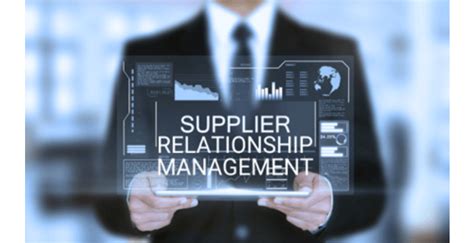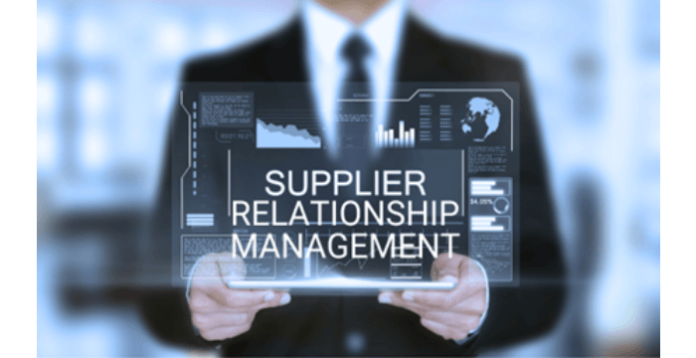Effective Supplier Relationship Management (SRM) is crucial for maintaining and enhancing business partnerships in today’s competitive market. While technical skills and strategies are often highlighted, the impact of soft skills—such as communication, leadership, and time management—cannot be overlooked. These skills play a pivotal role in building and sustaining strong supplier relationships, fostering collaboration, and driving mutual success. This article explores how elevating these soft skills can optimize SRM, offering insights into their importance and practical applications. By mastering these interpersonal skills, businesses can achieve better outcomes, improve trust, and create more efficient and effective supplier interactions.
Dive deep into this topic alongside rosawblog.com
1. Defining Supplier Relationship Management (SRM)
Supplier Relationship Management (SRM) is a strategic approach aimed at managing and optimizing the interactions between a company and its suppliers. It encompasses a range of activities designed to foster mutually beneficial relationships that drive value and performance. SRM goes beyond traditional procurement by focusing on collaboration, communication, and long-term partnership building.
At its core, SRM involves identifying key suppliers, developing detailed engagement strategies, and maintaining open lines of communication to ensure alignment with organizational goals. It also includes evaluating supplier performance through metrics and feedback, managing risks, and negotiating agreements that benefit both parties. Effective SRM helps companies secure high-quality goods and services, reduce costs, and achieve competitive advantages.
Moreover, SRM is not a one-time effort but a continuous process. It requires regular reviews and adjustments based on changing business needs and market conditions. By prioritizing strategic collaboration and leveraging supplier expertise, organizations can enhance their operational efficiency and drive innovation. Ultimately, SRM is about creating a value-driven partnership that supports both parties in achieving their respective objectives and fostering long-term success.

2. The Role of Soft Skills in SRM
Soft skills play a critical role in Supplier Relationship Management (SRM) by enhancing interactions and building strong, collaborative partnerships. Effective communication is fundamental, as it ensures clear, transparent exchanges of information and expectations between parties. This helps prevent misunderstandings and fosters a positive working relationship.
Leadership skills are equally important, as they guide and motivate teams to align with SRM objectives and navigate challenges. A strong leader can inspire confidence and facilitate strategic decision-making, ultimately strengthening the partnership with suppliers.
Time management is also crucial in SRM. Efficiently managing time allows for timely responses to supplier issues, adherence to project deadlines, and the ability to prioritize tasks effectively. This contributes to smoother operations and helps maintain a high level of supplier satisfaction.
Overall, integrating these soft skills into SRM practices enhances relationship-building, problem-solving, and operational efficiency, driving better outcomes and fostering long-term success in supplier partnerships.

3. Communication in SRM
Communication is a cornerstone of effective Supplier Relationship Management (SRM), serving as the primary channel through which information, expectations, and feedback are exchanged. Clear and open communication helps to establish mutual understanding and align goals between companies and their suppliers. It involves not only conveying information accurately but also actively listening to the supplier’s needs and concerns.
Regular updates and transparent discussions about performance, expectations, and changes ensure that both parties remain on the same page. This reduces the risk of misunderstandings and helps address issues before they escalate. Effective communication also includes providing constructive feedback and being responsive to inquiries, which fosters trust and collaboration.
Additionally, using various communication tools and platforms—such as meetings, emails, and project management systems—can enhance the efficiency and effectiveness of interactions. By prioritizing strong communication practices, organizations can build more resilient and productive supplier relationships, ultimately contributing to better SRM outcomes.

4. Leadership in SRM
Leadership in Supplier Relationship Management (SRM) involves guiding and influencing the dynamics of supplier partnerships to achieve strategic goals. Effective leaders in SRM are pivotal in setting a vision, aligning objectives, and driving collaborative efforts between their organization and suppliers. They play a crucial role in steering negotiations, resolving conflicts, and making strategic decisions that benefit both parties.
Strong leadership requires the ability to inspire and motivate teams, fostering a culture of mutual respect and shared success. Leaders must be adept at building and maintaining trust, which is essential for nurturing long-term, successful supplier relationships. They should also demonstrate problem-solving skills, adapting strategies to address evolving challenges and ensuring that supplier performance meets expectations.
Moreover, leadership in SRM involves effective delegation and empowerment of team members to manage day-to-day interactions while maintaining overall strategic oversight. By guiding and supporting their teams, leaders ensure that supplier management processes are efficient and that relationships are continually strengthened. Ultimately, effective leadership in SRM drives better collaboration, enhances supplier performance, and supports the achievement of organizational goals.
5. Time Management in SRM
Time management is essential in Supplier Relationship Management (SRM) for ensuring that all aspects of supplier interactions are handled efficiently and effectively. It involves prioritizing tasks, setting deadlines, and allocating resources in a way that maximizes productivity and minimizes delays. Effective time management helps organizations respond promptly to supplier inquiries, manage project timelines, and meet critical deadlines.
One key aspect of time management in SRM is scheduling regular meetings and checkpoints with suppliers to review performance, address issues, and align on goals. This ensures that both parties stay informed and engaged, preventing potential problems from escalating. Additionally, managing time well allows for timely and thorough analysis of supplier performance data, which is crucial for making informed decisions and adjustments.
Efficient time management also involves streamlining communication processes and avoiding unnecessary delays in approvals or feedback. By adopting tools and techniques for better organization and prioritization, organizations can enhance their responsiveness and operational efficiency. Ultimately, effective time management in SRM supports stronger supplier relationships, fosters collaboration, and contributes to overall business success.
6. Building Trust and Collaboration
Building trust and collaboration is fundamental to successful Supplier Relationship Management (SRM). Trust is the foundation upon which strong, long-term partnerships are built, and it is developed through consistent, transparent, and reliable interactions. To foster trust, organizations must demonstrate integrity, honor commitments, and communicate openly with their suppliers. This involves sharing relevant information, being honest about expectations, and addressing concerns promptly.
Collaboration extends beyond mere cooperation; it involves actively working together to achieve shared goals and solve problems. Effective collaboration requires mutual respect and a willingness to understand and accommodate each other’s needs and perspectives. It can be facilitated through regular communication, joint planning sessions, and collaborative problem-solving efforts.
Building trust and collaboration also means recognizing and valuing the supplier’s expertise and contributions. Engaging suppliers as strategic partners rather than just vendors encourages a more invested and proactive approach from both sides. By fostering a collaborative environment, organizations can leverage their suppliers’ strengths, drive innovation, and achieve better outcomes. Strong trust and collaboration ultimately lead to more effective SRM, enhancing performance and driving mutual success in the partnership.
7. Measuring SRM Success
Measuring the success of Supplier Relationship Management (SRM) involves evaluating various metrics to assess the effectiveness of supplier interactions and the overall impact on organizational goals. Key performance indicators (KPIs) such as supplier performance, delivery reliability, and quality of goods and services are critical for determining success. Regularly reviewing these metrics provides insights into areas of strength and opportunities for improvement.
Another important measure is the level of supplier satisfaction, which can be gauged through surveys and feedback mechanisms. High satisfaction levels often correlate with stronger relationships and better collaboration. Additionally, assessing the efficiency of communication and the resolution of issues can highlight the effectiveness of SRM practices.
Cost savings and value creation are also significant indicators of SRM success. By comparing the actual performance against the set objectives and benchmarks, organizations can determine if the SRM strategies are delivering the expected benefits. Continuous monitoring and analysis of these factors ensure that SRM practices remain aligned with organizational goals and drive continuous improvement.
8. Case Studies (Optional)
Case studies provide valuable insights into how effective Supplier Relationship Management (SRM) practices can be applied in real-world scenarios to achieve successful outcomes. For example, a leading technology company implemented a comprehensive SRM strategy to improve collaboration with its key suppliers. By focusing on clear communication, regular performance reviews, and mutual goal-setting, the company was able to enhance product quality and reduce lead times. This resulted in a 15% increase in overall supplier performance and a significant reduction in supply chain disruptions.
In another instance, a global manufacturing firm adopted a strategic approach to build trust and strengthen relationships with its suppliers. Through joint innovation workshops and transparent information sharing, the company and its suppliers co-developed new technologies that led to a 20% improvement in operational efficiency and cost savings. The emphasis on leadership and collaborative problem-solving proved essential in overcoming challenges and achieving shared success.
These case studies illustrate how investing in soft skills like communication, leadership, and time management can lead to tangible benefits in SRM. They highlight the importance of a strategic, relationship-focused approach and demonstrate how effective SRM practices can drive performance improvements, cost savings, and stronger, more collaborative partnerships with suppliers.
9. Conclusion/Summary of Key Takeaways
In conclusion, elevating soft skills such as communication, leadership, and time management is essential for optimizing Supplier Relationship Management (SRM). These interpersonal skills enhance the effectiveness of SRM by fostering clear interactions, building strong partnerships, and ensuring efficient operations. Effective communication ensures that expectations are aligned and issues are addressed promptly, while strong leadership drives collaboration and strategic decision-making. Time management ensures that tasks are prioritized and deadlines are met, contributing to smoother supplier interactions.
Building trust and collaboration further strengthens these relationships, leading to improved supplier performance and greater operational efficiency. Measuring SRM success through metrics such as performance indicators, supplier satisfaction, and cost savings provides insights into the effectiveness of these practices and highlights areas for continuous improvement.
Real-world case studies demonstrate the practical benefits of integrating soft skills into SRM strategies, showcasing how they can lead to significant performance improvements and cost efficiencies. By focusing on these key areas, organizations can enhance their supplier relationships, drive better outcomes, and achieve long-term success in their SRM efforts.
rosawblog.com
